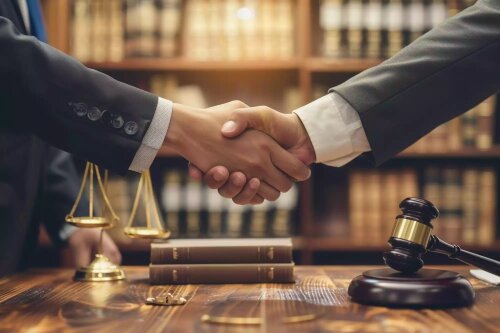Best Defamation Lawyers in Udaipur
Share your needs with us, get contacted by law firms.
Free. Takes 2 min.
List of the best lawyers in Udaipur, India
About Defamation Law in Udaipur, India
Defamation in Udaipur, as in the rest of India, is governed by the Indian Penal Code (IPC) and various civil law precedents. It is defined as the act of harming a person's reputation by communicating false statements about them to a third party. Defamation can be categorized into two types: libel (written defamation) and slander (spoken defamation). The historical and cultural context of Udaipur, with its strong emphasis on respect and reputation, makes defamation cases quite sensitive and could severely impact the involved parties' standing within the community.
Why You May Need a Lawyer
There are several situations in which someone might require legal assistance in defamation cases in Udaipur. Common scenarios include:
- You have been accused of defaming someone and seek to defend your reputation and legal rights.
- You believe someone has defamed you and want to pursue legal action to seek reparations and protect your reputation.
- You may need guidance on how to handle defamatory statements made against you online, in print, or by word of mouth.
- You are a public figure or business owner dealing with false statements that could impact your professional status or business.
- Legal advice is essential for understanding the complexities of filing a defamation suit or defending against one.
Local Laws Overview
Key aspects of defamation law in Udaipur are derived from national legislation and local judicial practices, including:
- The IPC's Section 499 and 500, which define defamation and specify the penalties, including potential imprisonment or fines.
- Civil liabilities may also arise under Indian Tort Law, allowing for damages to be claimed for harm to reputation.
- Udaipur courts have recognized the unique cultural implications of defamation in a city where reputation is closely tied to social standing.
- The Information Technology Act, 2000, is relevant in cases of online defamation, outlining the legal handling of defamatory digital content.
Frequently Asked Questions
What is needed to prove defamation in court?
To prove defamation, the statement must be false, published or spoken to at least one other party, and must have caused harm to the victim's reputation.
Is truth a defense in defamation cases?
Yes, truth is a defense in defamation cases. If the statement can be proven true, it is not considered defamatory.
Can opinions be considered defamatory?
No, generally opinions are not considered defamatory unless they imply false facts.
What are the possible penalties for defamation?
Penalties under IPC include imprisonment for up to two years, a fine, or both. Civil defamation can result in monetary compensation for damages.
Can I file a defamation case for something said online?
Yes, online defamation is actionable, and remedies are available under the Information Technology Act, 2000, in addition to conventional defamation laws.
Is there a time limit to file a defamation lawsuit?
In civil defamation cases, typically you have one year from the date of the defamatory act to file a lawsuit.
Do public figures have different standards in defamation cases?
Yes, public figures must prove actual malice, meaning the statement was made knowing it was false or with reckless disregard for the truth.
What should I do if I receive a notice for defamation?
If you receive a legal notice, consult a lawyer immediately to evaluate the claims and formulate a response.
Can businesses also be defamed?
Yes, defamatory statements harming a business's reputation or causing financial loss can lead to legal action.
How can I protect myself from a defamation lawsuit?
Avoid making false public statements about individuals or businesses, and seek legal advice if you are unsure.
Additional Resources
Helpful resources for those seeking legal assistance in defamation cases include:
- The Rajasthan High Court in Jodhpur, which provides judgments and case law that can be referenced.
- Legal aid clinics and organizations like the Legal Services Authorities Act, offering guidance in civil and criminal matters.
- Online legal forums and consultation services that provide preliminary advice.
Next Steps
If you need legal assistance in a defamation matter, consider the following steps:
- Compile all relevant evidence, including any communications or content related to the case.
- Contact a lawyer who specializes in defamation law to discuss your scenario and potential legal strategies.
- Understand your legal rights and obligations as outlined by your legal counsel.
- Consider mediation or alternative dispute resolution for an amicable solution before proceeding to litigation.
- Stay informed and regularly consult with your lawyer to ensure your case progresses efficiently.
Lawzana helps you find the best lawyers and law firms in Udaipur through a curated and pre-screened list of qualified legal professionals. Our platform offers rankings and detailed profiles of attorneys and law firms, allowing you to compare based on practice areas, including Defamation, experience, and client feedback.
Each profile includes a description of the firm's areas of practice, client reviews, team members and partners, year of establishment, spoken languages, office locations, contact information, social media presence, and any published articles or resources. Most firms on our platform speak English and are experienced in both local and international legal matters.
Get a quote from top-rated law firms in Udaipur, India — quickly, securely, and without unnecessary hassle.
Disclaimer:
The information provided on this page is for general informational purposes only and does not constitute legal advice. While we strive to ensure the accuracy and relevance of the content, legal information may change over time, and interpretations of the law can vary. You should always consult with a qualified legal professional for advice specific to your situation.
We disclaim all liability for actions taken or not taken based on the content of this page. If you believe any information is incorrect or outdated, please contact us, and we will review and update it where appropriate.








